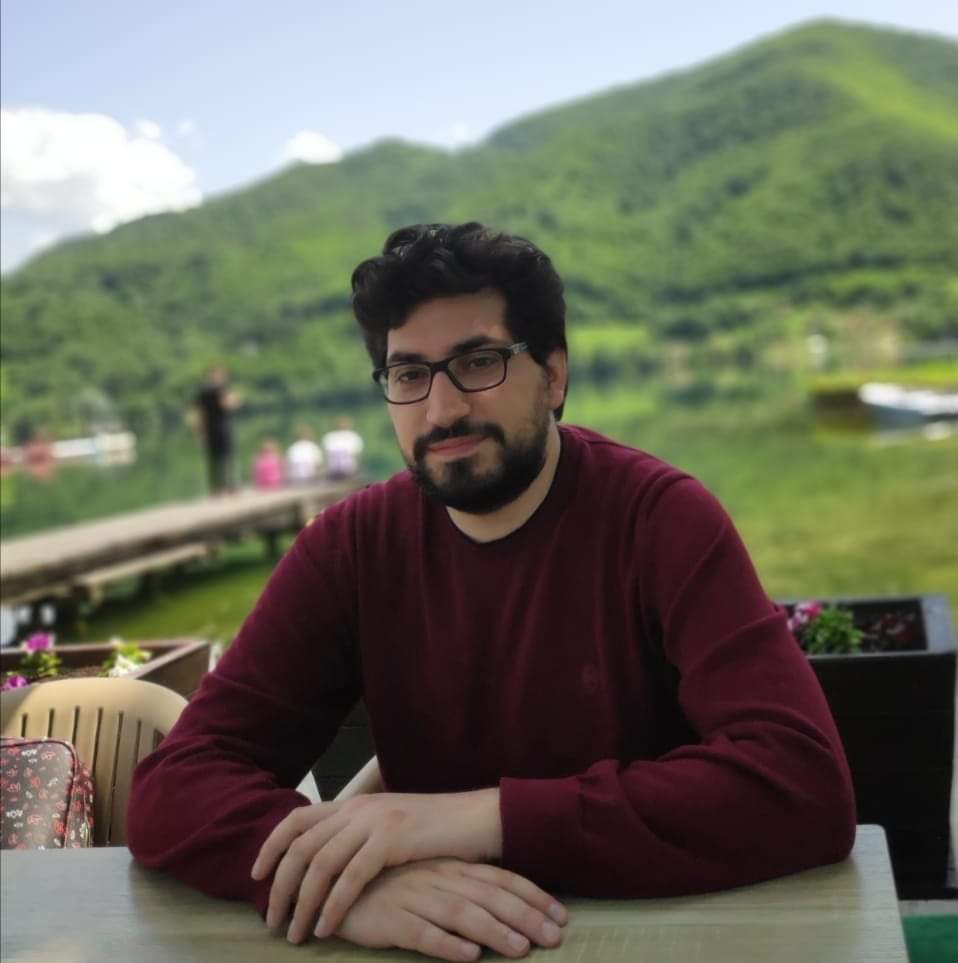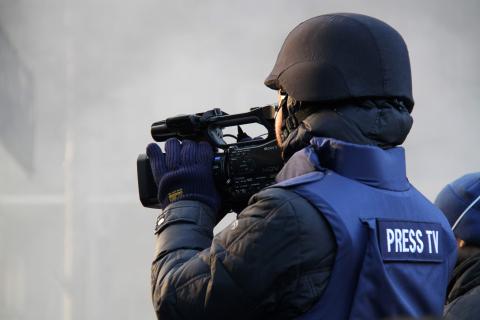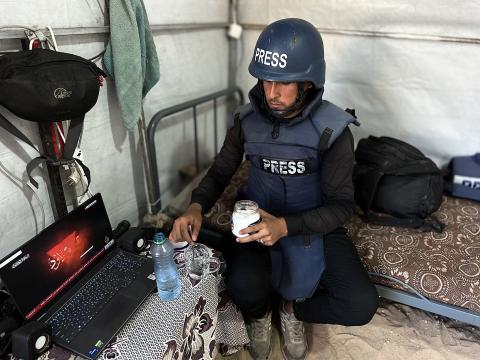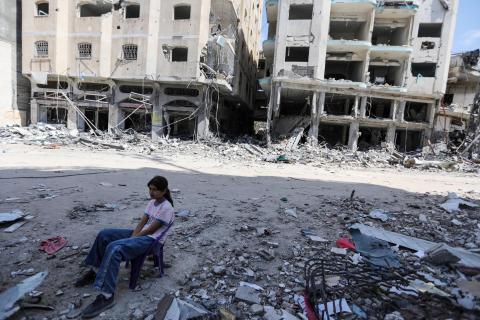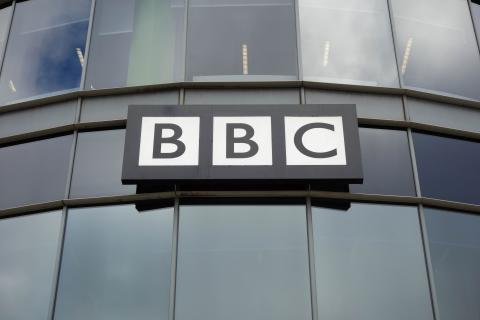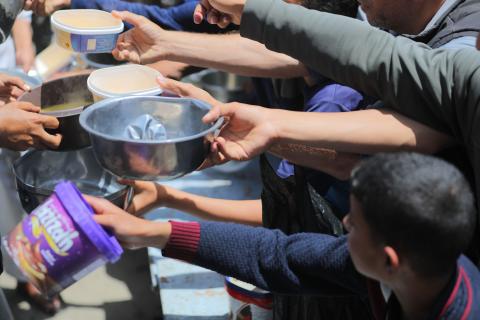Al Jazeera Journalism Review
Intersections of Journalism and Social Sciences in the Field
The field is where journalism and the social sciences meet at their most dynamic edge. As the world grows more complex, journalists increasingly take on the role of sociologists, without abandoning their core mission to question power and expose uncomfortable truths. By drawing on the methods and insights of social science, journalism deepens its coverage, grounds stories in real-world contexts, and resists the temptation of surface-level narratives.

Anas Al-Sharif’s Killing and the Israeli Media Narrative
Following the assassination of journalist Anas Al-Sharif, Palestinian journalists have been framed in Israeli media as legitimate military targets—part of a deliberate strategy to silence those who bear witness to the truth. This article explores how Hebrew-language media outlets have engaged in rhetoric that incites and legitimises the killing of journalists in Gaza.

New Media Reforms in Bangladesh Introduced to Replace Hasina-Era Journalism
Bangladesh’s interim government, led by Muhammad Yunus, has launched ambitious media reforms to undo the legacy of Sheikh Hasina’s 15-year rule, which was marked by censorship, media monopolies, and the notorious Digital Security Act. However, despite promises of greater freedom, journalists remain wary, as self-censorship, restrictive laws, and public scepticism continue to cast doubt on genuine change.

Canadian Journalists for Justice in Palestine: A Call to Name the Killer, Not Just the Crime
How many journalists have to be killed before we name the killer? What does press freedom mean if it excludes Palestinians? In its latest strike, Israel killed an entire Al Jazeera news crew in Gaza—part of a systematic campaign to silence the last witnesses to its crimes. Canadian Journalists for Justice in Palestine (CJJP) condemns this massacre and calls on the Canadian government to end its complicity, uphold international law, and demand full accountability. This is not collateral damage. This is the targeted erasure of truth.

Monitoring of Journalistic Malpractices in Gaza Coverage
On this page, the editorial team of the Al Jazeera Journalism Review will collect news published by media institutions about the current war on Gaza that involves disinformation, bias, or professional journalistic standards and its code of ethics.

Anas Al Sharif; Killed by Israel, but His Final Words Will Echo far Beyond His Death
For over a year and a half, Anas Jamal al-Sharif refused to leave northern Gaza, documenting the destruction and loss that others tried to hide. Tonight, Israel silenced his voice, but his final words, written on April 6, will echo far beyond his death.

Protecting Palestinian Journalists Should be First Priority - Above Western Media Access
Why demand entry for foreign reporters when Palestinian journalists are already risking—and losing—their lives to tell the truth? Real solidarity means saving journalists' lives, amplifying their voices, and naming the genocide they expose daily.

The Washington Post: When Language Becomes a Veil for Pro-Israel Bias
How did The Washington Post's coverage differ between Israel’s bombing of Gaza hospitals and Iran’s strike on an Israeli hospital? Why does the paper attempt to frame Palestinian victims within a “complex operational context”? And when does language become a tool of bias toward the Israeli narrative?
The Human Story in Gaza: The Deadly Dilemma of “Who Do We Tell About?”
In the accelerating context of genocide, is the “pace” of death in Gaza outstripping journalists’ ability to capture human stories? How can they be expected to take their time crafting narratives amid hunger, displacement, and death? And to what extent can postwar documentation hold journalistic value in preserving collective memory and pursuing accountability for the perpetrators?

The Battle to Keep Journalists Alive in Gaza
Hungry journalists covering the story of starvation in Gaza, surviving on salt to stay alive, selling their work equipment to secure a “sack of flour” for their children, shedding the “shame” of publicly asking for food, and enduring the harshest media environment just to maintain “continuous coverage”.

Balancing Productivity and Privacy: How Female Journalists Use AI Chatbots
Female journalists in Jordan are harnessing AI chatbots to boost productivity, enhance digital safety, and find emotional support, but their growing reliance also raises critical concerns about privacy, ethics, and the responsible use of emerging technologies in journalism. This article explores how these tools are reshaping their workflows while navigating the challenges of trust and accountability.
From "Death Announcement" to "Eulogy": The Obituary as a Journalistic Genre
Obituaries for influential public figures have become a recognised journalistic genre, handled by seasoned reporters in major media outlets. How did this practice evolve, what defines it professionally, and how ethically acceptable is writing obituaries in advance?

Canadian Mainstream Media’s Orientalist Stance Towards Palestinians
Canadian mainstream media manufactures consent to support Israel through biased language, withholding historical context, and conflating any criticism of the Israeli state with antisemitism. When the Canadian mainstream media covers the question of Palestine, they usually frame it as a religious issue and withhold the historical and socio-political context.

Bias by Omission: How Israeli Occupation Crimes Are Filtered in Western Media
Western media coverage of the war on Gaza does not stop at bias in what it chooses to publish; it practices a deeper form of bias: bias by omission. Testimonies are excluded, massacres are marginalized, and the narrative is reshaped to serve a single version of events. This analysis explores how “gatekeepers” in Western newsrooms play a direct role in silencing the Palestinian voice and entrenching the Israeli narrative.

In the War on Gaza: How Do You Tell a Human Story?
After nine months of genocidal war on Palestine, how can journalists tell human stories? Which stories should they focus on? And does the daily, continuous coverage of the war’s developments lead to a “normalisation of death”?

From Rwanda to Palestine: How Media Becomes a Partner in Genocide
July 4 each year coincides with Liberation Day in Rwanda, which marks the end of the genocidal war against the Tutsi. This article explains the reasons behind the media’s neglect of the genocide and how the press failed to help prevent it. It also offers a critical perspective on how the same practices are being reproduced in coverage of the genocidal war on Palestine.

The BBC Says It’s “Impartial.” But Its Own Staff Say Otherwise
BBC journalists and media professionals accuse the BBC’s leadership — and board member Robbie Gibb in particular — of blocking truthful reporting on Israel/Palestine through censorship, political bias, and a culture of fear that betrays the BBC’s duty to report “without fear or favour.”

How Much AI is Too Much AI for Ethical Journalism
As artificial intelligence transforms newsrooms across South Asia, journalists grapple with the fine line between enhancement and dependency

How to Tell the Stories of Gaza’s Children
Where does compassion end and journalism begin? How can one engage with children ethically, and is it even morally acceptable to conduct interviews with them? Palestinian journalist Reem Al-Qatawy offers a profoundly different approach to human-interest reporting. At the Hope Institute in Gaza, she met children enduring the harrowing aftermath of losing their families. Her experience was marked by intense professional and ethical challenges.

How Is Western Media Framing the Famine Catastrophe in the Gaza Strip?
Can the media subject the issue of famine in Palestine to so-called professional balance even after UN agencies and the International Court of Justice have acknowledged it? Why have many Western media outlets avoided precise legal and ethical terms such as “famine” or “starvation,” opting instead for vague expressions like “food shortage” or “nutrition crisis”? Doesn’t this practice reflect a clear bias in favor of the Israeli narrative and serve to justify the policy of “systematic starvation”?

Do Foreign Journalists Matter in Covering Genocide? A Look into Bosnia, Rwanda, and Gaza
How did foreign journalists cover the killings in both Bosnia-Herzegovina and Rwanda? Did they contribute to conveying the truth and making an impact? Would the entry of foreign journalists into the Gaza Strip change the reality of the ongoing genocide? And would their coverage of the famine and massacres add to the daily coverage of local journalists?
Why is the local press's coverage of wars seen as deficient compared to Western journalism, even though they incur greater losses and casualties?
